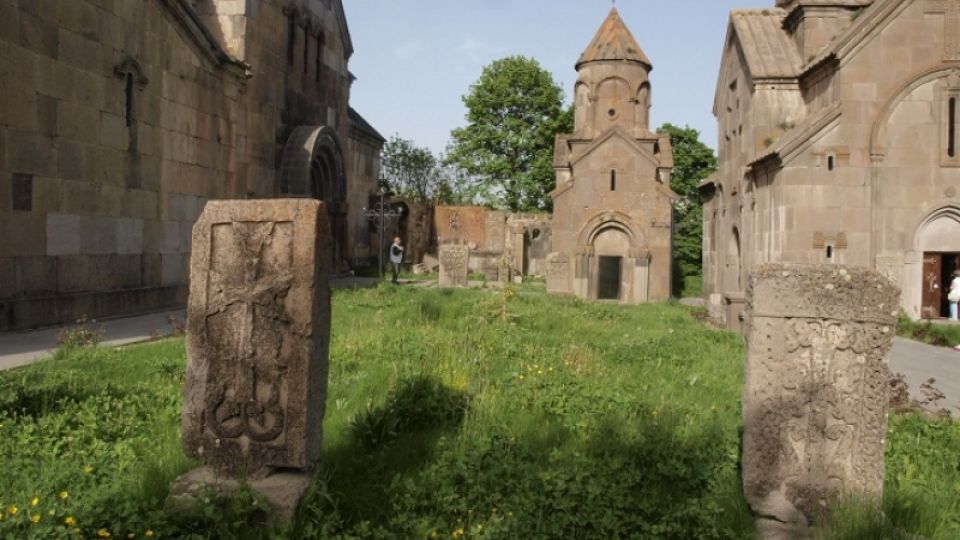On 31 May 2011, the Toxics and Waste Programme of the Arnika Association and the Armenian Women for Health and Healthy Environment NGO (AWHHE) in partnership with the OSCE Office in Yerevan organised an international conference to mark the ten year anniversary of the Stockholm Convention on Persistent Organic Pollutants (POPs). The conference was also an occasion to present the results of a joint EU funded project entitled “Scaling up Experience in Improvement of Chemical Safety to Contribute to Poverty Reduction in Rural Armenia”.
In October 2003, Armenia ratified the Stockholm Convention -- a global treaty to protect human health and the environment from highly dangerous chemicals. To help Armenia in implementing the Convention, the EU-funded project is focused on assisting rural communities to implement sustainable agriculture by offering technical solutions to eliminate contamination of several hotspots by obsolete toxic pesticides (including POPs).
Jindrich Petrlik from the Arnika Toxics and Waste Programme presented the results of analysis of 57 samples of air, soil and other solid matrices obtained at the following five sites suspected to be POPs hot-spots: one pesticide burial site (Nubarashen), three former pesticide storage sites (Jrarat, Echmiadzin and Masis) and one dumpsite containing copper production waste (Alaverdi). An inspection on the state and possible risk receivers at the sites as well as the level of food chain contamination was conducted, too. “Analyses have found DDT at sites where obsolete pesticides were stored, and the most serious finding was old stocks of DDT in Jrarat. DDT, other pesticides, and dioxins were found also in food sampled,” informed Petrlik.
Speaking about possible solutions to decontamination of the hotspots, Jindrich Petrlik noted: “It is necessary to deal with the contamination responsibly, and not to allow new risk to the public health and the environment,” and stressed: “Non-combustion technologies should be used, that don’t lead to another pollution of the environment”. There are also some simple short term measures to reduce this risk such as putting fences around contaminated areas or stopping the use of the contaminated buildings as storage for currently used fertilizers and pesticides.
Both, AWHHE and Arnika believe that only the cooperation of the non-governmental organisations, governmental bodies, and experts can bring sustainable solutions. For this reason, AWHHE has established a network of Armenian civic associations and an information center on chemical safety. “Chemical contamination can debase the quality of water and soil. To try and break this vicious cycle of dependency, the project helped citizens organise and fight for their rights through awareness raising activities and promoting alternatives,” said Elena Manvelyan, AWHHE President.
The European Union is the major donor of the “Scaling up Experience in Improvement of Chemical Safety to Contribute to Poverty Reduction in Rural Armenia” project. Other supporters at various stages included the Global Environmental Facility through UNDP, Global Greengrants Fund, International POPs Elimination Network, Women in Europe for a Common Future (WECF) and the Czech Development Agency. The Conference is organised with partial support from the OSCE Office in Yerevan.







